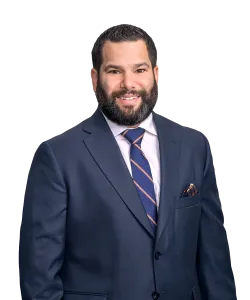New York Cannabis Regulations Are (Initially Ruled) Unconstitutional, Says New York Judge
New York Supreme Court Justice Kevin Bryant recently ruled that all New York State cannabis regulations are unconstitutional and therefore, null and void. In an opinion issued on April 3, Justice Bryant explained that the adoption of the regulations by the state’s cannabis regulator, the Cannabis Control Board, were “arbitrary and capricious and violative of Petitioners rights under the New York Constitution.”
However, on April 4, Justice Bryant revised his ruling, to narrow its scope, to only rule unconstitutional the third-party, advertising-specific regulations at issue in the case.
The case was brought by Leafly Holdings, Inc., an out-of-state cannabis marketplace, and other plaintiffs, against the Cannabis Control Board, to invalidate portions of the Regulations that prohibited third-party advertising for cannabis products. The case is Leafly Holdings Inc., et al v. New York State Office of Cannabis Management, et. al, Index No. 908706-23 (N.Y. Sup. Ct.).
The case challenged Parts 118-121, 123-125, and 131 of Chapter II of Title 9 of the Official Compilation of Codes, Rules, and Regulations of the State of New York, which governed the adult-use cannabis market in New York. The regulations were developed over the past two years by the Office of Cannabis Management (OCM), the entity that administers the Marihuana Regulation and Taxation Act for the Cannabis Control Board. Leafly submitted numerous comments to OCM during the public comment period for the regulations, but OCM did not respond before finalizing the regulations in 2023.
The court noted the many deficiencies in OCM’s rulemaking process, including the evidence used to underpin the regulations and the lack of documents and transcripts submitted to the court to bolster the administrative record for the regulations. Lastly, in the revised ruling, Justice Bryant noted that the following regulations are “impermissible restrictions on petitioners’ right to free speech” and were also “unconstitutionally vague”:
- “The Third-Party Marketing Ban, Parts 9 N.Y.C.R.R. $$123.10(g)(21) and l24.5(a).”
- “[t]he Pricing Ban, 9 N.Y.C.R.R. $124.1(bxsxii) the Third-Parf Order Ban,9 N.Y.C.R.R. $123.10(9)(23).”
- “[t]he Third-Party All-Licensee Listing Mandate, 9 N.Y.C.R.R. $12a.lOX2).”
- “[t]he Third-Party Distributor Listing Mandate, 9 N.Y.C.R.R. $12a.1(cXl)-(2).”
Though it is almost certain that OCM will appeal the ruling and seek a stay of the ruling throughout the entirety of the appeal, the impact of the decision upon cannabis businesses has the potential to be immense. This is because, originally, Justice Bryant not only invalidated the portions of the regulations that affected the plaintiffs in this case but also invalidated all of the regulations in their entirety, including those regarding licensing and enforcement against the illegal cannabis marketplace.
This initial ruling, even though most of the collateral consequences were reversed in the revised ruling, could provide a template for other plaintiffs to sue and argue that all the regulations are “arbitrary and capricious,” resulting in uncertainty for how social equity license holders, dispensaries, and manufacturers could operate in the state or if New York could have a functional, legal adult-use market at all.
Cannabis businesses will want to proceed with caution on all fronts until the regulatory structure is once again clarified by a future ruling or state legislative action.
Contacts
- Related Industries



